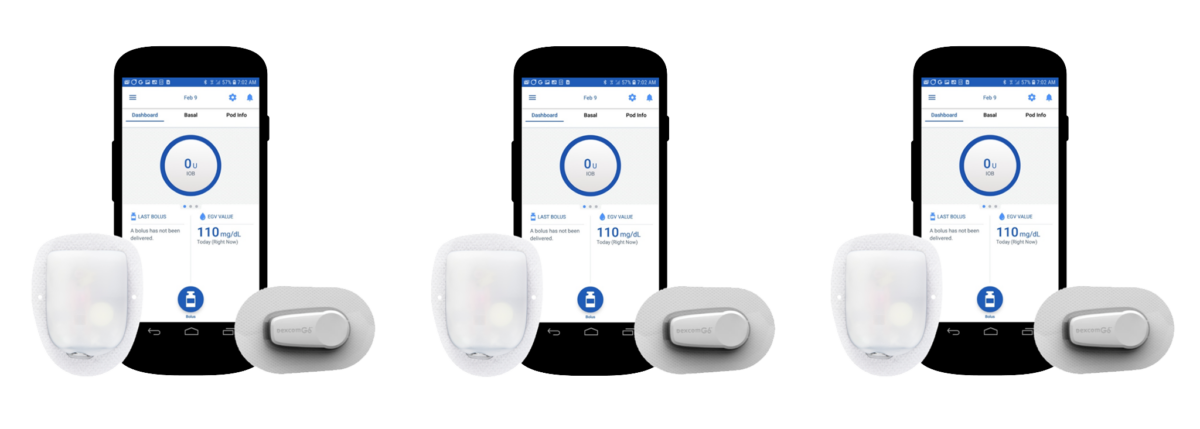Promising New Drug Leads to 22.5% Weight Loss in Adults Living with Obesity
Written by: Ginger Vieira
3 minute read
May 5, 2022
The latest study on a new drug that aims to treat diabetes and/or obesity is making headlines for its impressive ability to help those who struggle to lose weight.
Tirzepatide is a once-weekly injectable medication from Lilly Diabetes. It will be the first and only dual GIP/GLP-1 receptor agonist once approved by the FDA, likely in the second half of 2022.
While medications like tirzepatide are usually thought of as a treatment for type 2 diabetes, other related drug classes are sometimes prescribed “off-label” to people with type 1 diabetes who are struggling with obesity or being overweight.
The most recent SURMOUNT-1 study consisted of 2,539 participants with an average starting body weight of 231 pounds.
- At the lowest dose—5 mg—participants lost 15 percent of their body weight over 72 weeks.
- At higher doses—10 and 15 mg—participants lost about 20 percent of their body weight over 72 weeks.
- More than half of the participants taking the higher dose lost 20 percent of their body weight compared to only 1.3 percent taking a placebo.
- At best, many participants lost 22.5 percent of their body weight—about 52 pounds from a starting weight of 231 pounds.
“Tirzepatide is the first investigational medicine to deliver more than 20 percent weight loss on average in a phase 3 study, reinforcing our confidence in its potential to help people living with obesity,” said Jeff Emmick, MD, Ph.D., vice president, product development, Lilly.
“Obesity is a chronic disease that requires effective treatment options, and Lilly is working relentlessly to support people with obesity and modernize how this disease is approached.”
But tirzepatide has more than weight loss to offer those with any type of diabetes. Let’s take a glance at how it works and the benefits demonstrated through other recent studies.
How does tirzepatide work?
Despite the dozens of diabetes medications that already exist, Tirzepatide offers something no others do. It combines two components for the first time to provide a powerful variety of benefits. These two components are:
- glucose-dependent insulinotropic polypeptide (GIP)
- glucagon-like peptide-1 (GLP-1)
Working together, this dual GIP/GLP-1 can have the following effects on your diabetes health:
- Increase your natural insulin production (type 2 diabetes).
- Improve your sensitivity to insulin.
- Reduce the amount of sugar your liver produces.
- Slow the digestion process.
While these benefits may sound simple, they have the potential to completely shift how your body manages sugar and insulin.
Past studies on Tirzepatide
Prior to the SURMOUNT-1 study, there were a variety of notable studies on tirzepatide: SURPASS-3, SURPASS-5 and SURPASS-2. The most recent phase three of SURPASS-4 included more than 13,000 participants.
- A1c reduction: Trial participants with A1c levels starting at/above 8.0% experienced about a 2.5-point reduction. For example: 9.5% down to 7.0%. According to reports from SURPASS-4 91% of participants achieved an A1c of 7% or lower, while 43% achieved an A1c of 5.7% or lower.
- Weight loss: The most significant weight loss compared to any other diabetes medication. The average weight loss after 52 weeks was about 25 pounds, with trial participants taking the highest dose (15 mg) losing about 27 pounds, and on the lowest dose (5 mg) about 17 pounds.
- Lessened risk of hypoglycemia compared to other medications: Yes, tirzepatide can potentially cause low blood sugars but the risk appears to be very minimal compared to taking insulin or a sulfonylurea drug. When starting tirzepatide, you’ll work closely with your doctor adjust other diabetes medications, including insulin, as necessary.
- Reduction in triglycerides and cholesterol: After 52 weeks, the highest dose, Tirzepatide reduced total cholesterol by about 5.6%, triglycerides by 22.5%, LDL cholesterol by 7.9%, VLDL by 21.8%, and increased HDL by 10.8%.
Studies on tirzepatide continue to evaluate the potential benefits it holds for those struggling with obesity, type 2 diabetes, and prediabetes. Further results from the most recent SURMOUNT study are expected in 2023.

Author
Ginger Vieira
Ginger Vieira is an author and writer living with type 1 diabetes, celiac disease, fibromyalgia and hypothyroidism. She’s authored a variety of books, including “When I Go Low” (for kids), “Pregnancy with Type 1 Diabetes,” and “Dealing with Diabetes Burnout.” Before joining Beyond Type 1 as digital content manager, Ginger wrote for Diabetes Mine, Healthline, T1D Exchange, Diabetes Strong and more! In her free time, she is jumping rope, scootering with her daughters, or walking with her handsome fella and their dog.
Related Resources

On November 20, 2024, Medtronic received FDA clearance for its latest InPen app. This advancement...
Read more

Eli Lilly and Company is helping patients and caregivers understand important changes to Medicare Part...
Read more

Already compatible with Dexcom’s G6 and G7 continuous glucose monitors (CGMs), the Omnipod 5 Automated...
Read more

